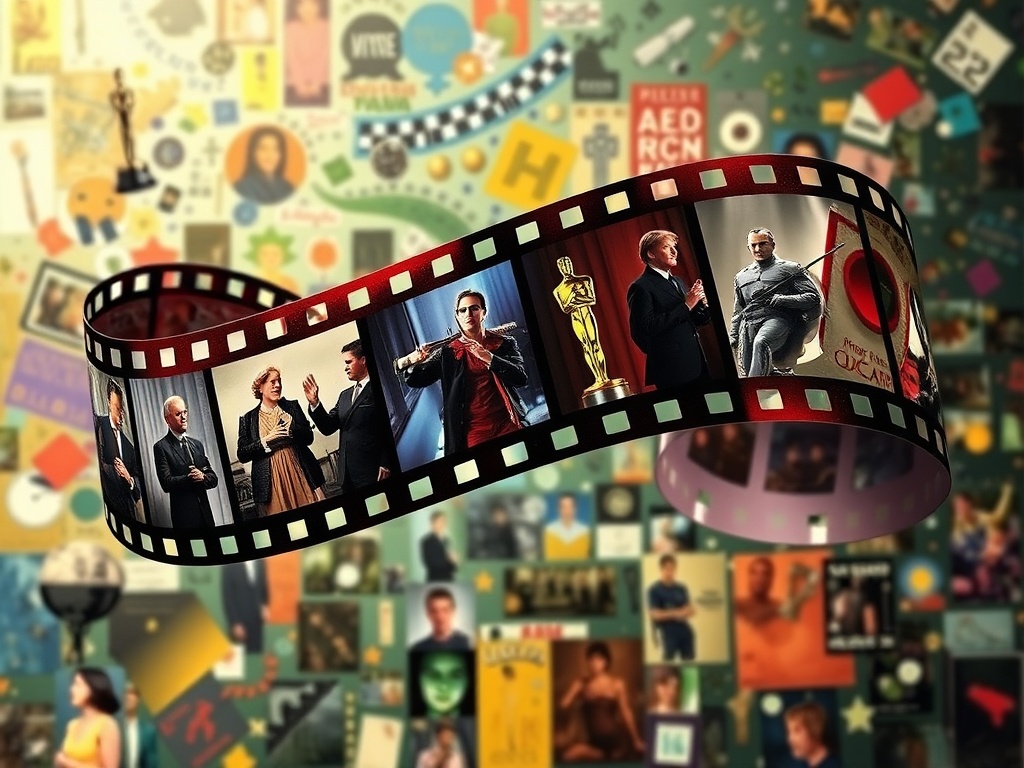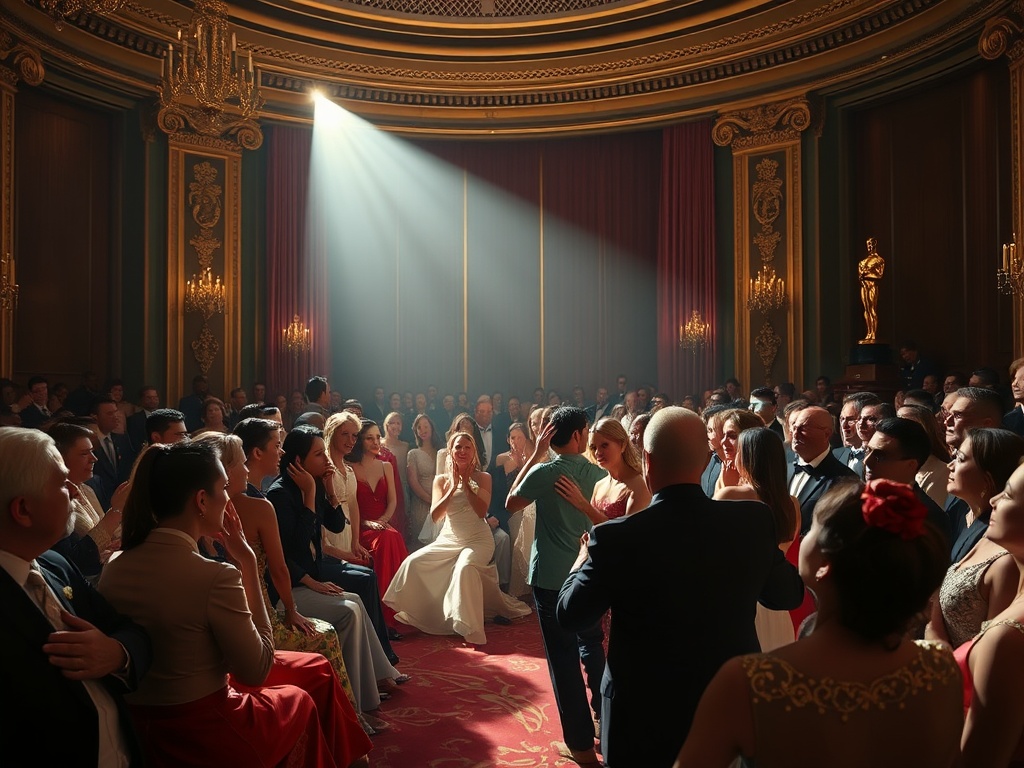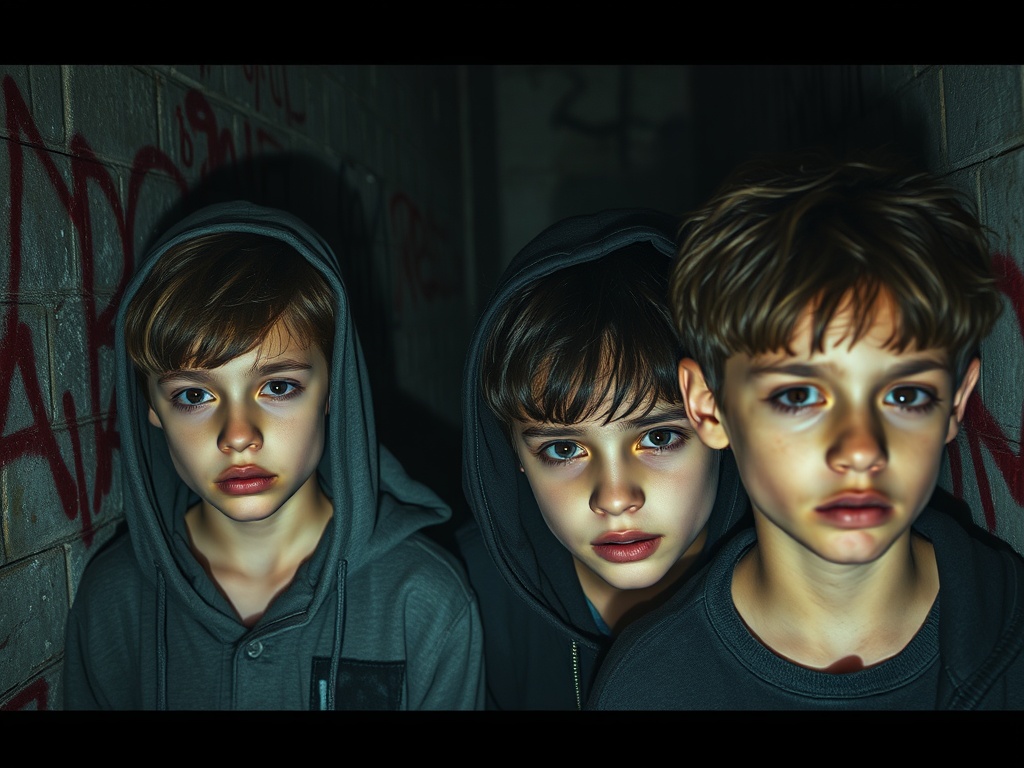I know a thing or two about having strong opinions on what is being transmitted into my living room – after all, I’m a born-and-bred American who grew up watching my dad shout at the Super Bowl. The Oscars is my Super Bowl: both events are glitzy, overlong American broadcasts filled with endless spectacle and distraction, beaming over to British TV at unsociable late-night hours, leading viewers to swear at their screens. Sure, there have been some truly brilliant Best Picture winners: From Here to Eternity (1954), All About Eve (1951), Titanic (1998), Moonlight (2017), and the upcoming Oppenheimer (2024). This year, for my money, the Best Picture greatness contender is The Brutalist. However, the Academy is an institution you can almost always rely on to make baffling decisions – this year’s nomination of the appalling, nearly unwatchable Emilia Perez is a prime example.
Today, I’m here to round up seven of the worst offenders, outrageous decisions, and downright bizarre winners ever to grace the Oscars stage. Get ready for some passionate opinions!
7. Shakespeare in Love (1998)
Gwyneth Paltrow as Viola in Shakespeare in Love (Photo: NBC Universal) swept up Best Picture over Steven Spielberg’s Saving Private Ryan – and won Gwyneth Paltrow a Best Actress statuette in the process. This film remains one of the most notable Oscar controversies to date. Heavily promoted by its now-disgraced Miramax producer Harvey Weinstein, this fun yet flimsy reimagining of William Shakespeare’s love life, packed with a plot-heavy romantic comedy, paled in comparison to other nominated films that year, including the outstanding war epic, Terrence Malick’s The Thin Red Line. Often cited as evidence of how awards campaigning can corrupt the Academy, and certainly not helped by Weinstein’s subsequent convictions, it’s a film that hardly holds up against a list of Best Picture winners. In 2015, The Hollywood Reporter conducted a survey of Academy voters to do a “recount” of several controversial wins, and a vast majority expressed that they would have chosen Saving Private Ryan over Shakespeare in Love.
6. Dances With Wolves (1991)
Kevin Costner in Dances With Wolves (Photo: Tig Productions/Getty) raises questions about its relevance for contemporary audiences. How many people from younger generations, or indeed any generation, are yearning for a rewatch of this well-intentioned but corny Western? Can anyone quote memorable lines from Dances With Wolves? Do people still discuss its bravura scenes – intricate tracking shots, poignant character deaths, or darkly comic moments? Now, compare this to the modern classic that is Martin Scorsese’s Goodfellas, which boasts all of these elements and lost out to Dances With Wolves. The Academy seemed to favor a film that addressed the complicated history of Native American and indigenous people, but they ultimately chose one directed by and centered on a white man, resulting in a plodding vanity project.
5. Driving Miss Daisy (1989)
Morgan Freeman and Jessica Tandy in Driving Miss Daisy represent a notorious blunder in Oscar history and a peculiar choice overall. This backward-looking white savior narrative was recognized in 1989 and continues to be viewed today as antiquated and borderline racist, depicting a subservient black driver (Morgan Freeman) who, through superhuman patience and understanding, manages to shift the bigoted attitudes of his elderly Jewish employer (Jessica Tandy). The film trivializes racism as an issue of the past, suggesting we have largely “solved” it as a society. What were they thinking when Spike Lee’s powerful and relevant Do The Right Thing was released the same year and wasn’t even nominated?
4. Crash (2005)
Thandie Newton and Matt Dillon in Crash (Photo: Bullseye Entertainment) illustrate the Oscars’ long-standing tradition of selecting winners that often fail to stand the test of time. Paul Haggis’s Crash winning over Brokeback Mountain – the then-controversial tale of gay cowboy love from Ang Lee – exemplifies this trend. Unfortunately, Crash was not only inferior to that film but simply lacked quality. The film’s attempt to weave multiple stories into a mosaic of social ills in Los Angeles comes off as painfully obvious and embarrassingly broad, particularly in its depictions of urban gang warfare and poverty, all viewed through the lens of a wealthy man whose true-life inspiration stemmed from his Porsche being carjacked. It serves as a glaring example of what happens when a rich white man attempts to showcase his bleeding-heart liberal credentials.
3. Forrest Gump (1994)
Tom Hanks in Robert Zemeckis’s Forrest Gump (Photo: Sunset Boulevard/Getty) once again exposes the Academy’s conservative tendencies, as the top award was given to this backward-looking, ahistorical nostalgia over the edgy, violent postmodernism of Quentin Tarantino’s Pulp Fiction. While I enjoy Gump like the next person – who doesn’t love Tom Hanks? – the film’s underlying messages present a shallow examination of social change, treating the anti-war movement as a joke and portraying hippies as mindless. Furthermore, it insinuates that sexual promiscuity leads to tragedy, using the AIDS crisis as a mere plot device. Although it offers plenty of memorable quotes, it lacks depth beyond a charming tale of a “simpleton.”
2. Green Book (2019)

Viggo Mortensen and Mahershala Ali in Green Book (Photo: Universal Pictures) represent a puzzling choice in a strong year for nominees, which included Alfonso Cuarón’s Roma and Yorgos Lanthimos’s The Favourite. The Academy’s decision to award Peter Farrelly’s Green Book, a film reminiscent of Driving Miss Daisy but in reverse, was met with controversy. This narrative features a racist white driver (Mortensen) transporting a successful black pianist (Ali) through the racially charged Deep South during the Jim Crow era. Perhaps voters were swayed by the strength of the performances – both actors were at the top of their game – but the flimsy story attempts to reconcile racial tensions in an offensively syrupy manner. This choice was particularly embarrassing for being made in 2019, as the film feels like it belongs to a bygone era.
1. American Beauty (1999)
Kevin Spacey as Lester Burnham in American Beauty (Photo: CBS/Getty) epitomizes the Oscars’ knack for selecting winners that don’t age well. Starring the disgraced Kevin Spacey as a creepy suburban dad infatuated with his daughter’s high-school friend Angela (Mena Suvari), Sam Mendes’s film feels profoundly uncomfortable to watch in the present day. Lester’s story embodies a very Gen X malaise, devoid of economic crisis, without the looming presence of Trump, and largely ignoring considerations of racial or sexual discrimination; it represents a white man’s frustration with an otherwise comfortable existence. Today, its attempts to appear cool or subversive come off as deeply cringeworthy. Spacey’s deadpan voiceover seeks to critique modern middle-class life and the tedium of “achieving” the American dream, yet the objects of his scorn are predominantly women. His wife Carolyn, portrayed by the talented Annette Bening, is left clueless, while the camera shamelessly ogles his teenage crush Angela. This is not the kind of classic I’m eager to revisit.




